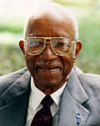A Quote by Deborah Harkness
The world of scholarship is much more measured in its appreciation and also its criticism than the world of popular literature.
Quote Topics
Related Quotes
I don't have a very high opinion, actually, of the world of criticism - or the practice of criticism. I think I admire art criticism, criticism of painting and sculpture, far more than I do that of say films and books, literary or film criticism. But I don't much like the practice. I think there are an awful lot of bad people in it.
I would tell myself to get more sleep! Believe it or not, I wrote the book while finishing my PhD in English literature. It was wonderful to get away from doing literary scholarship by writing this mythical love story. I think so much of my own love for books and scholarship comes through in The Thorn and the Blossom.
The narrative image has more dimensions than the painted image - literature is more complex than painting. Initially, this complexity represents a disadvantage, because the reader has to concentrate much more than when they're looking at a canvas. It gives the author, on the other hand, the opportunity to feel like a creator: they can offer their readers a world in which there's room for everyone, as every reader has their own reading and vision.
Business students are very oriented to playing a role in the real world and accomplishing something, not training themselves to be scholars and contribute to the literature. Teaching in that kind of environment has focused me much more on the real world, how pieces of the theory I know can be applied to real-world situations.
I will go wherever the truth leads me. It is secular scholarship, Rebbe; it is not the scholarship of tradition. In secular scholarship there are no boundaries and no permanently fixed views.” Lurie, if the Torah cannot go out into your world of scholarship and return stronger, then we are all fools and charlatans. I have faith in the Torah. I am not afraid of truth.
It has seemed to me that literature, as I meant it, was embattled, that it was increasingly difficult to find writing doing what I thought literature should do - which was simply to push people into changing their ideas about the world, and to go further, to encourage us in the work of changing the world, to making it more just and more truly human.
In the eight years I worked at newspapers, even during a little stretch when I was a film critic, I was never, ever doing exclusively criticism. In the daily newspaper world, much more value is placed on reporting than on thinking abstractly about art. The eight years I was in newspapers, I was mainly a journalist in the conventional sense, and just doing criticism when there were opportunities.







































